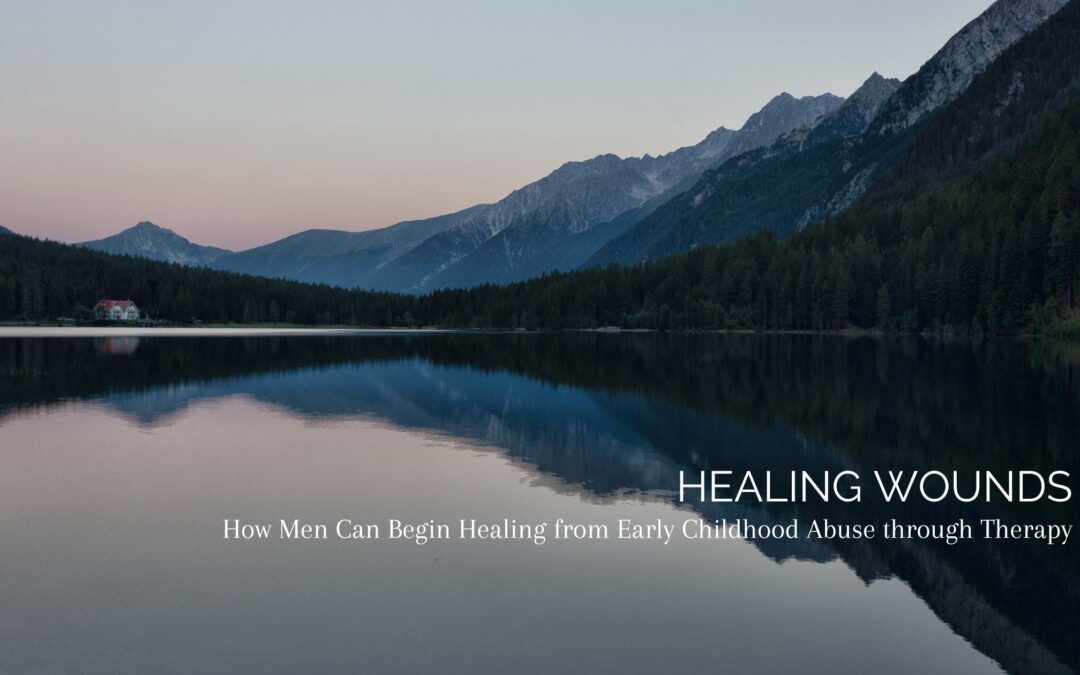The impact of early childhood experiences on an individual’s mental and emotional well-being cannot be overstated. For men who have faced abuse during their formative years, the effects can linger into adulthood, influencing relationships, self-esteem, and overall quality of life. This blog post explores the crucial importance of men addressing and treating early childhood abuse through therapy, emphasizing the transformative power of seeking professional help.

Early childhood abuse can manifest in various ways, affecting one’s behavior, relationships, and narratives about themselves and the world. Men who have faced abuse may struggle with self-esteem, anxiety, depression, or post-traumatic stress disorder (PTSD). It can also influence interpersonal dynamics, making forming and maintaining healthy connections challenging. Therapy enables individuals to gain insight into the roots of their struggles, helping them understand how early experiences shape current behaviors and emotions.
One of the most powerful outcomes psychotherapy offers is the opportunity to break the cycle of trauma and abuse. Many survivors find themselves drawn to similar abusive patterns in their lives. Whether that be at work, friends, or romantic partners, often, men might find themselves perpetuating harmful patterns learned in childhood, unintentionally passing on the trauma to others. Through therapy, men can learn healthier coping mechanisms, identify patterns of abuse, intrusive negative thoughts, and emotions, and establish positive relationship dynamics. This not only benefits the individual but contributes to creating a more secure environment for future generations.
Early childhood abuse can profoundly impact self-esteem and self-worth. Men who have experienced abuse may struggle with feelings of inadequacy, guilt, shame, or a distorted sense of self. Therapy provides a platform for rebuilding self-esteem by challenging negative beliefs, fostering self-compassion, and encouraging personal growth. The therapeutic process allows individuals to rediscover their strengths and develop a more positive self-image.

Addressing early childhood abuse through therapy requires a willingness to be vulnerable. Men may have been conditioned to associate vulnerability with weakness, but it is a powerful act of strength. Therapy provides a supportive space for individuals to explore their vulnerabilities, express their emotions, and reclaim control over their lives. It is through this vulnerability that true healing can occur.
Beginning the process of healing from early childhood trauma can be a daunting task, though it is one full of freedom and healing. It is a transformative journey that requires courage, self-reflection, and a commitment to healing. By seeking professional help, men can break the chains of silence, understand the impact of their past, and embark on a path toward rebuilding their lives with newfound strength and resilience. Therapy is not a sign of weakness but a decisive step towards reclaiming one’s narrative and creating a brighter, more empowered future.
Photo credits:
Photo by Nik Shuliahin 💛💙 on Unsplash




